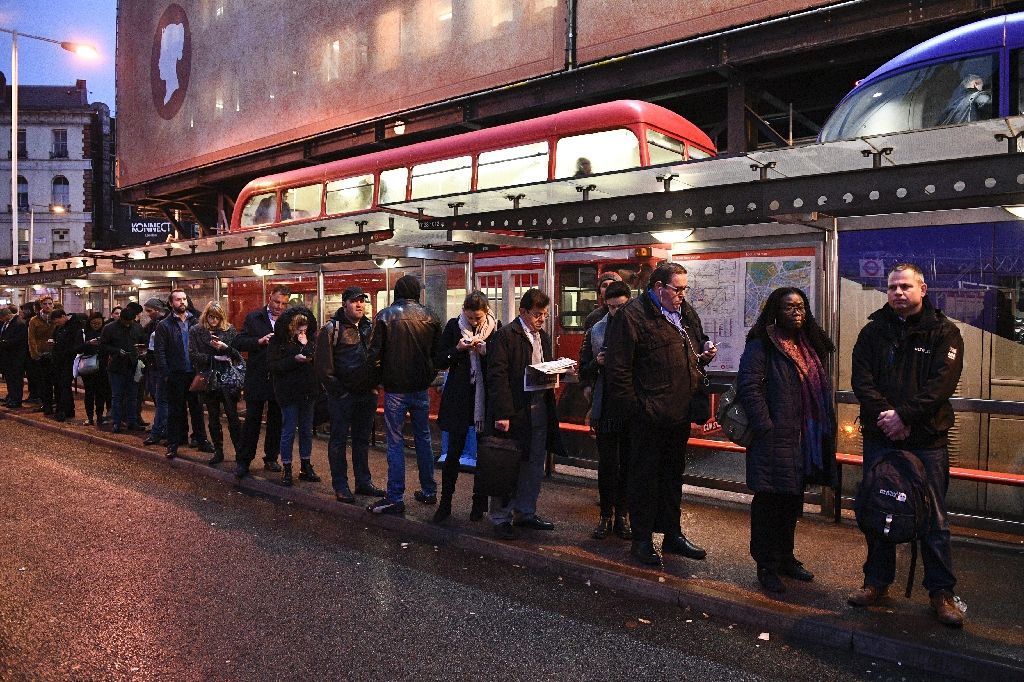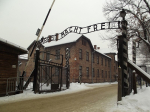
Millions of Londoners endured a chaotic start to the week on Monday after a strike shut down most of the Underground network, including many city centre stations.
Clapham Junction, a major transport hub in the south of the capital, had to be evacuated in the morning rush hour due to overcrowding as passengers were forced onto packed overland trains to get to work.
Ten of the 11 Tube lines were disrupted by the 24-hour strike by members of the RMT union, who walked out on Sunday evening in a dispute over job cuts and staffing levels.
Squeezed into packed train carriages, or waiting for hours for buses in the cold, dark and damp January morning, many commuters expressed their frustration at the disruption.
"It's a real pain," said finance worker Ross Kemp, waiting for a bus at King's Cross station, adding that he had "limited sympathy" for the striking Tube workers.
Mayor Sadiq Khan condemned the action as unnecessary, saying he was already addressing concerns that job cuts had left many Tube stations dangerously understaffed.
"I accept the argument that we need more staff on the London Underground," said the mayor, who took office in May last year, in an interview with BBC radio.
"Already we've created 200 new posts and want to carry on talking if the trade unions are unhappy. Why strike? Why not resolve these things amicably?"
Mick Cash, the leader of the RMT, said he was prepared to talk further but warned that the loss of more than 830 jobs, many due to ticket office closures, had left the network struggling.
"Five million people a day use the Tube and it's creaking at the seams," he told AFP.
- 'We have to adapt' -
"There aren't enough staff to make sure it runs safely. If we don't do something there's going to be something drastic go wrong."
He warned this was a particular problem as London faced a heightened security threat, and insisted many passengers supported the action.
"The Tube users know that there's problems on the network, they see how overcrowded it is," he said.
Extra buses were laid on to replace some Tube services, but there were long queues and heavy traffic meant many passengers found it quicker to walk.
Fiona Stockwell, a commuter at King's Cross, said she left home early to beat the rush but was "not really pleased about it".
She said the closure of staffed ticket offices in Tube stations was inevitable given that most people now used contactless tickets.
"We have to adapt to new technology," she said.
London Underground is the world's oldest subway network, having opened in 1863, and records 1.34 billion journeys every year.
Further disruption is expected this week as workers on the Southern rail service, which runs between London and the southern English coast, strike on Tuesday, Wednesday and Friday.
It is the third strike on Southern since the beginning of December, as unions step up their opposition to plans to downgrade the role of the conductor on trains. afp


































